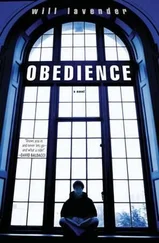She drew the envelope closer in the lamplight. For the first time since she’d bought the rundown Victorian house, she was thankful for the quirky wiring. Without it, she’d have never found the letters.
But still, she added calling an electrician to her ever-growing list. She looked at the envelope more closely.
It had grayed over the long years, but the names and addresses were legible, the postmark unmistakable. Nineteen forty-four. That would have been World War II . When she read the address line, her breath caught. Her home, 722 Hidden Beach Road, and the names: To Grace Chandler from William Bryant.
The roar of the ocean momentarily grabbed her attention. She paused and listened to the angry sea as a barrage of palm fronds smacked the side of her house. Adrienne set the box down on the wooden coffee table and leaned back, melting into the couch.
How many times had she entered the attic and flipped the breaker, unaware of the delicate silver package hovering above in the rafters? If not for the spider and Adrienne’s ninja skills with the designated spider-broom, the box would still be up there, safely hidden from prying eyes, with an old-fashioned ink pen; a black-and-white photograph; and lastly, the stack of letters tied with a faded lavender ribbon.
Earlier in the night, Adrienne had almost given up on the on-again, off-again wiring and gone to bed, when the lights flickered, went off, and stayed off. But oil lamps made one brave, and the thought of waking at 3:00 a.m. to a house with its own set of imaginary ghosts and strange noises had forced her up the creaky attic stairs. Now she was glad she’d gone. Maybe she was finally getting used to the turn-of-the-century house. And being alone. She hadn’t thought about it until her first night in the creaky old Victorian, but she’d never been alone. Not ever. She’d gone from her folks’ house in Missouri to college with a roommate—four years of fun; and then to being married to Eric—almost six years of torture. But never alone. Until now.
Her neighbor Sammie had warned her about the violent Florida storms and recommended she purchase the lamp along with the candles and flashlights. Oh, she did have one friend: Sammie. But the two of them together could hardly be considered a party. There was also Ryan, the college guy who’d helped move in her belongings. They’d shared a few fun dinners and beach strolls, but Ryan wasn’t what she needed. Fun college boys might have appealed a few years back, but not now. Even if she did get some major remodeling done on the house, a party with her only two friends would be laced with more obstacles than the clearance section of the lumberyard. No party.
She reached for the oil lamp. The soft flame danced in flickering waves that grew taller as she turned the lever. Shadows snaked to the corners of her living room. Her living room. In the house she’d bought after a five-minute inspection. Really, when she thought about it, it was crazy. So she didn’t think about it. Messy divorces had a way of tweaking one’s common sense. Adrienne had spent the last few months tweaked.
But the house was growing on her. Sort of. It was becoming a home. That’s what she told herself. Well, one thing for sure: it looked a whole lot better now than it had when she’d flown down from Chicago and made an immediate offer—which had been accepted almost as fast.
Adrienne touched the edge of the ribbon. “Nice to meet you, Grace Chandler and William Bryant.” Who were they, the faceless names in the letter? Grace had lived in this house. Sara must be her sister. Each had occupied one of these rooms. She closed her eyes for a moment, listening for the past. Did they live here long? Did William return from the war? With the light brighter, she reached into the box and found the photograph. A handsome young man in a crisp Army uniform stood smiling, with a young girl at his side. Adrienne’s finger ran along the opposite side, which sported a jagged yellow edge. Someone had ripped that section off. She flipped the photo over. The date, 1942, adorned the back, but no names.
This could be William. What about the girl? She couldn’t be Grace. The girl in the pretty polka-dotted dress was just a child, years younger than the boy.
He was strikingly good-looking, with an eager grin that made Adrienne want to smile back. Eyes sharp and focused, he looked out at her from inside the picture. Poetry danced in those eyes, not unlike the poetry of the letter. Surely this must be William.
After extinguishing the oil lamp, Adrienne rose and carried the box to the kitchen table. The flashlight tucked beneath her arm fell across a local phone directory—the town was so small it still printed them—splattered with bits of sheetrock dust and spackle. Her fingers gently drummed the tabletop the way they always did when she was considering something ridiculous. William Bryant, WWII veteran, in the directory and still here after so many years? Not likely. Or Grace Chandler? No. It was an eternity ago, yet the words in the letter had come alive in her hands, the love seeming as fresh and new as it must have been when he wrote them.
She chewed her bottom lip. It was nearly raw from her chewing it during the day’s work of stripping the fireplace mantle. Since moving to Florida, she’d discovered a few things about herself. One, she was pitifully deficient when it came to renovating houses. And two, when she discovered she was pitifully deficient at something, she gnawed her lips to shreds. One glance at the envelope and her fingers were finding their way through the directory pages. B for Bryant.
Halfway down the page, William Bryant waited.
William Bryant—known to everyone as Pops—rubbed a hand over the fifty-year-old scar on his left leg. Humid mornings brought a stiffness he’d learned to live with but didn’t relish. He rose from the bed slowly, letting old bones and joints awaken as he moved to the window and peeled back the curtain. Lonely strands of light sought to illuminate the room, leaving hazy streaks across the space.
A few personal items and pictures sat here and there, but not quite enough to make it feel like home. He tried to keep the room tidy enough to please his grandson Will, yet cozy enough to please himself, but when he’d tripped on a stack of books in the middle of the night, Will’s desire for a safe, streamlined area overruled Pops’s affection for creature comforts.
The notion of a stroll encouraged a second glance out his window. Morning dew cloaked the backyard with a glistening splash of moisture. No walk to the pier this morning, he decided, tossing a look at the gray sky. With the sun’s inability to break through the clouds and burn off the dew, everything remained slick. He wasn’t afraid of a little moist grass, but Will worried about him, so he would honor his grandson’s wishes.
He didn’t despair over Will’s desire to protect him. Will had sacrificed much of his valued personal space to make room for his only living grandfather. The boy had even forfeited half the library where Pops’s treasured books waited for him, meticulously positioned and ready.
He let the curtain fall back in front of the window, bathing the room in quiet darkness. Weather-imprisoned and joints throbbing, he allowed himself the indulgence of self-pity. But sometimes pity, though she had an edge that could cut, was a welcome companion. After all, it was hard for a man like him to admit age was overtaking agility. Time was conquering dexterity.
He had few regrets. At age eighty-one, not too bad. He’d married a good woman. They’d had a beautiful son. And now he had Will. The memories were first rate. So he’d wake up every morning, open his eyes, and see what was in store for him. At this age, what more could he ask for?
Читать дальше











